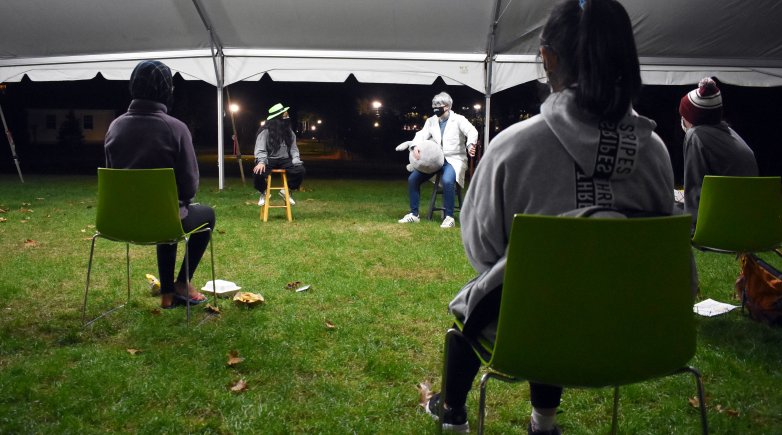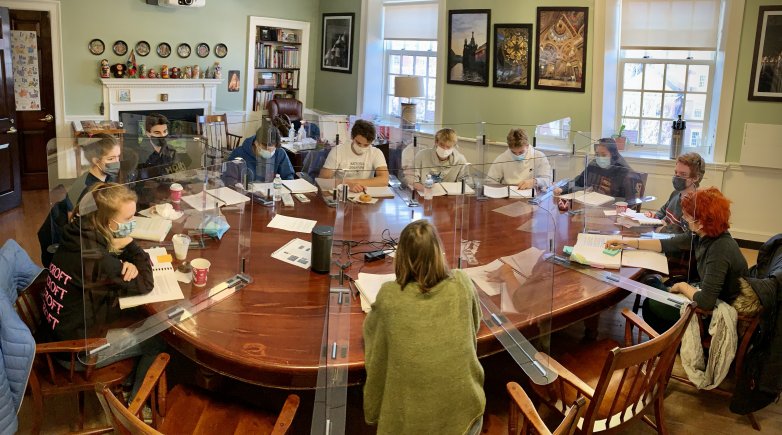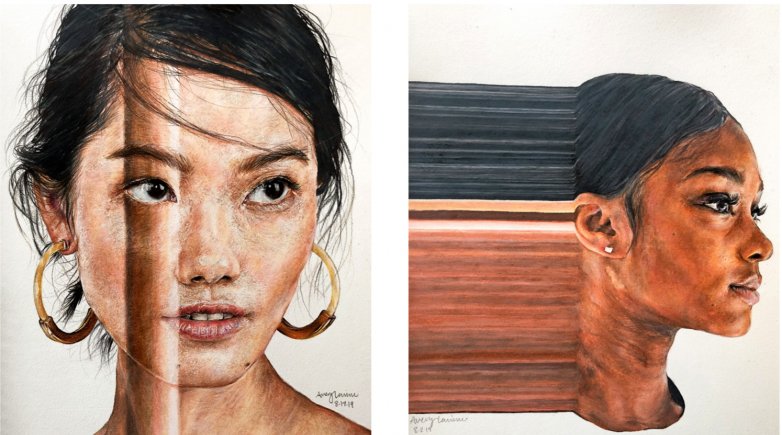The club heads have been aided in their efforts by the Student Activities Office, which worked hard to ensure that clubs could continue operations despite the ongoing pandemic-related restrictions. “This year we’re taking a more proactive approach to make sure that our clubs are accessible to all students, whether remote or in person,” says Joanne Lembo, Director of Student Activities.
That nimbleness and creativity will carry into winter term, with the community once again scattered around the country and globe until mid-February. After setting a mandatory schedule for club and affinity group meetings in the fall, Lembo plans to ensure that scheduled club meeting times are in time zones that work for all club members, including international students. “We realized this fall it was not perfect for our remote students, especially when Daylight Savings Time hit,” she says. “We’re looking to make it better in the winter.”
A virtual conference
“In a typical year, we spend a lot of time preparing for conferences, which are held on college campuses,” says Nahla Owens ‘21, co-president of Model United Nations, another popular club. “But because of COVID-19, it was difficult for us to even think about leaving campus or bringing people to campus.”
The club usually hosts its own Model UN conference at Exeter, inviting about 500 students from schools around the country. In March 2020, Owens and her four co-presidents started planning to have their annual conference go virtual. Held over a weekend in early November, Exeter’s one-day online Model UN conference, PEAMUN XII, hosted delegates from all over North America. Each delegate paid just $5 to participate, and all the admissions proceeds went to charities chosen by Owens and her co-president, Noah James ‘21.
“We wanted to use the opportunity to be as non sibi a club as we could possibly be, and raise money for causes that we cared about while also bringing people into the fold that may not have had the opportunity to attend a Model UN conference before,” Owens says.
Along with the virtual conference expanding its reach, it also allowed for a star speaker it might not otherwise have drawn: Former U.S. Ambassador to the United Nations Samantha Power delivered the keynote address, donating her time after a correspondence with James.

Avoiding “Zoom fatigue”
As a leader of both Mock Trial and Democratic Club, as well as Dramat, Wainwright has enjoyed the community provided through both virtual and in-person meetings. In the fall, she and her fellow club heads petitioned Student Activities to allow them to hold in-person auditions and rehearsals, a process that Lembo says was open to any dorm, class, club, or other group that wanted to meet in person. By November, Dramat had staged several student-run productions, performing under a large tent set up near The David E. and Stacey L. Goel Center for Theater and Dance.
While meetings of both ALES and Asian Voices, an Asian student affinity group, have in the past centered around discussion, simply moving that discussion online wasn’t enough, given that most students are spending much of their day in virtual classrooms already. “Convincing people to spend another hour of their day being on Zoom is really hard,” says Owens, who is also president of ALES and co-president of Democratic Club.



